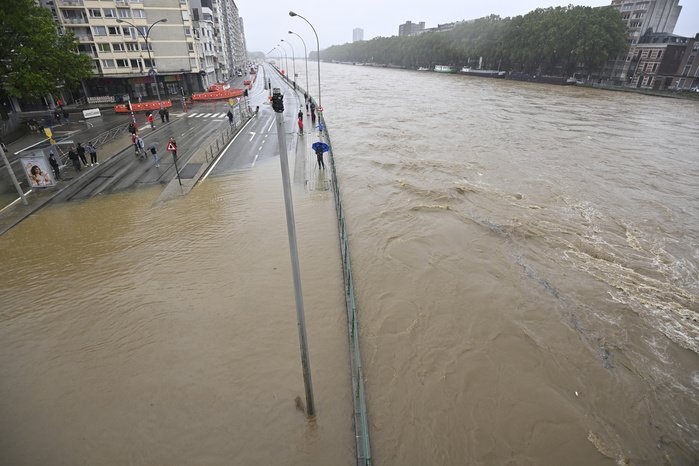Less than one week after Belgium experienced what has been named its worst flooding in history, the Royal Meteorological Institute (KMI) has already predicted more thunderstorms and heavy rainfall are to be expected next week.
As most of Belgium is bathing in the sunshine this week, people living in the areas which were most heavily affected by the flooding last week are still clearing up the debris and fixing the damage that was caused, as emergency help services are still being sent to Limburg and Wallonia every day.
"Because of the misery we got - a lot of rain over the same region for a long time - many waiting basins are filled to the brim and cannot handle any extra capacity," Professor of Hydrology Patrick Willems (KU Leuven) told Het Nieuwsblad.
"If it starts raining hard now - I don't mean a heavy downpour but another prolonged period of heavy rainfall - it could cause serious problems," he added.
Related News
- Wallonia welcomes national and international disaster relief
- Insurers promise rapid action for flood victims
- 'Hopeful news:' 50 people who were missing after floods found today
- 'We will not abandon you', De Croo tells victims of flooding on national day of mourning
Although the weather will be changeable, meaning it is difficult to predict with precision how heavy the showers will be, the KMI predictions show intense rainfall can be expected in certain regions, including those which experienced heavy flooding.
"These summer storms are not a tragedy in themselves. It rains a lot in a short time, but these showers usually move on quickly. Watercourses rarely burst their banks in summer, rather sewers become oversaturated and cause flooding. But now we have another problem," Willems said.
In these areas, especially around Maaseik, where several dams and dykes burst and the Maas started flowing out of the river beds, any extra rain could be disastrous, even if the warm weather has helped evaporate a lot of the excess water, according to Willems.
He added that intense flooding could happen more often in the future, and that it should be considered whether, especially in valleys in heavily affected regions, they should start to consider whether "the risk of continuing to live there is justified."

